
Publish time: Tue Mar 07 14:59:38 CST 2017
On February 27 2017, the 11th In-house Counsel Forum themed “Forum on Practical Skills of International Commercial Arbitration” was successfully co-hosted by the Beijing Arbitration Commission / Beijing International Arbitration Center (the “BAC/BIAC”) and The Center for Corporate Counsel Management at The China University of Political Science and Law (the “Center”). Mrs. Hilary Heilbron QC from the Brick Court Chambers was the keynote speaker at the invitation of the hosts, and the moderator and the commentator were acted by Mr. Tao Jingzhou, Arbitrator of the BAC/BIAC and Managing Partner in charge of Business Development in Asia, Dechert, LLP and Dr. Arthur Dong, Arbitrator of the BAC/BIAC and Partner of Anjie Law Firm, respectively, who jointly shared their experience with regard to practical skills in international commercial arbitration. Mr. Lin Zhiwei, Secretary General of the BAC/BIAC and Mr. Li Tiezheng, R&D Director of the Center, delivered the welcome speeches on behalf of the hosting institutions.
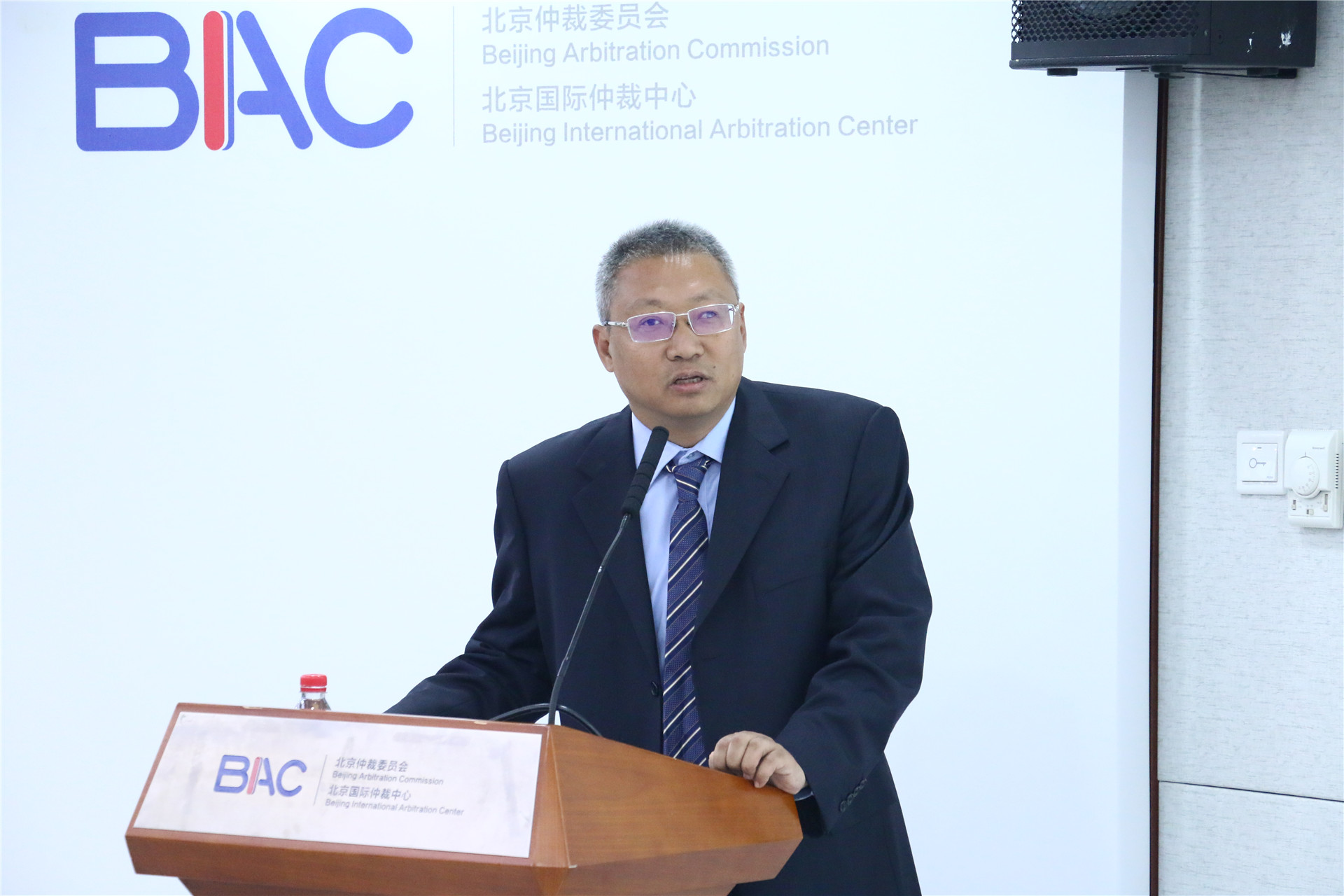 |
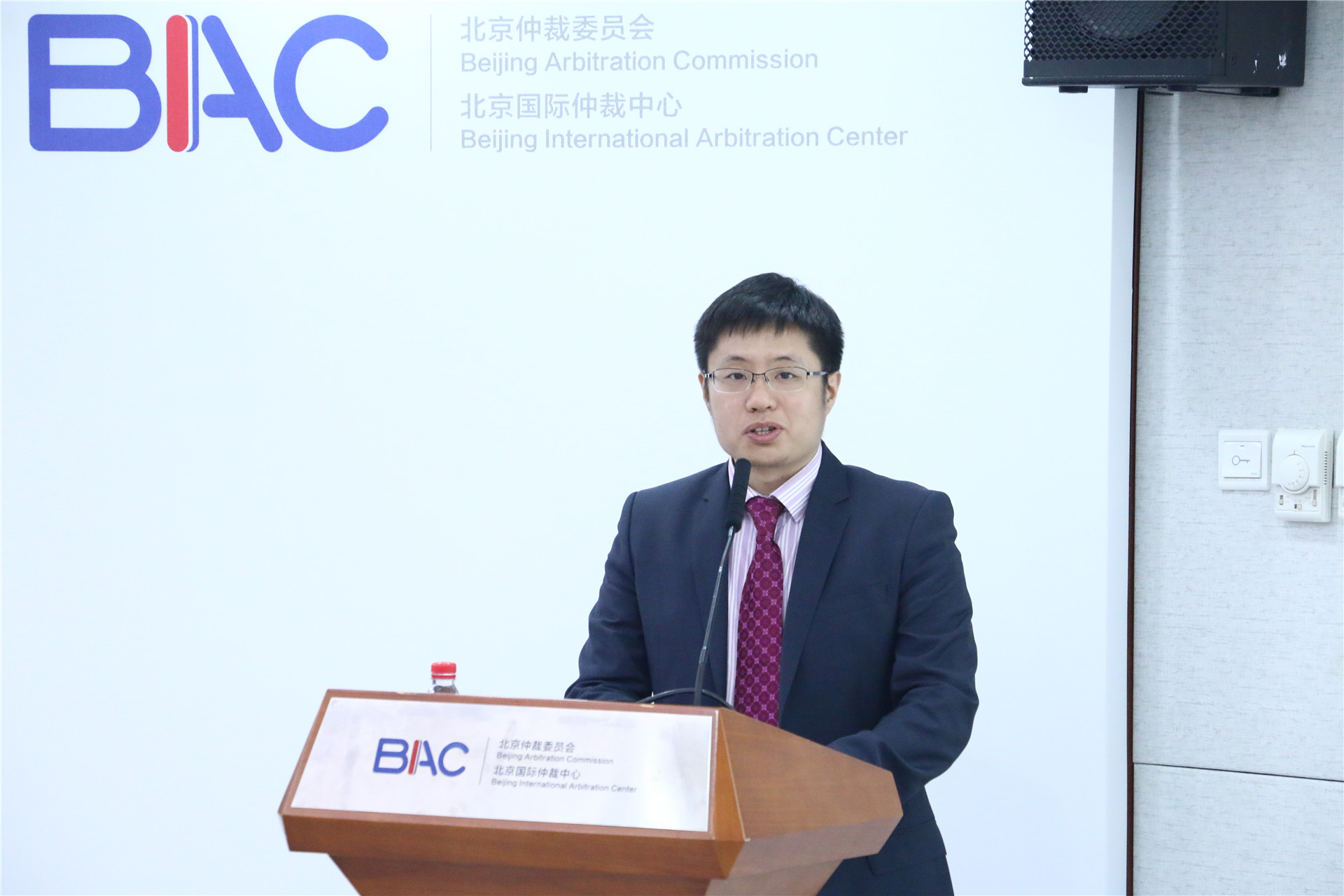 |
|
Welcome speech by Mr. Lin Zhiwei |
Welcome speech by Mr. Li Tiezheng |
With the constant progress of the Belt and Road Initiative, Chinese enterprises have been engaged in more and more international commercial arbitrations when extending their business overseas. The many differences between international arbitration practice and the Chinese domestic arbitration have become unavoidable and realistic challenges to Chinese local legal professionals. For this reason, Mr. Lin thought that “it is a significant issue for Chinese in-house counsels and lawyers as to how to participate in international business and trade in internationalized ways and how to better cope with international commercial arbitration as a mean of dispute resolution”.
Chinese local dispute resolution practitioners often find that in domestic litigation and arbitration practice, both parties stress on achieving the aim of “beating” the counterparty by adopting various argument skills. This, however, results in fierce antagonisms in domestic litigation and arbitration proceedings, and sometimes even conflicts. As mentioned by Mr. Tao Jingzhou, in international commercial arbitration proceedings, Chinese in-house counsels and lawyers often focus on convincing the counterparty, but neglect a positive interaction with the arbitral tribunal and other participants in arbitration. In light of the dilemma of Chinese enterprises in international commercial arbitration, it will be of important value of reference for improving domestic litigation and arbitration to have positive interaction with all the participants of arbitration and to smoothly conduct the proceedings. It was also under this topic that Mrs. Hilary Heilbron QC started her impressive speech. She stressed the important role the parties should play in the formation of the arbitral tribunal, and shared her “secret skills” based on her own experience for the interaction between the arbitral tribunal and the parties’ counsels in arbitral proceedings.
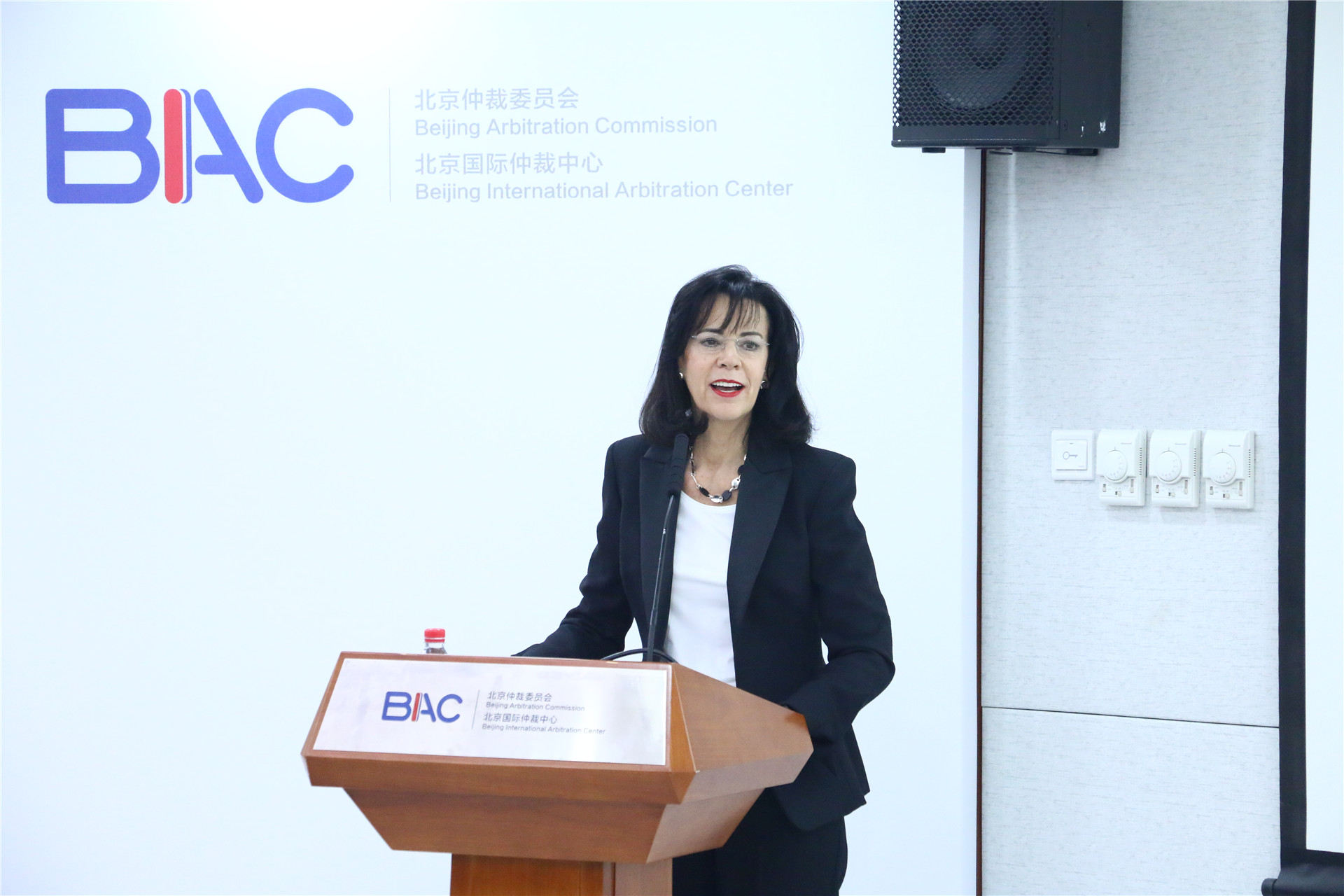 |
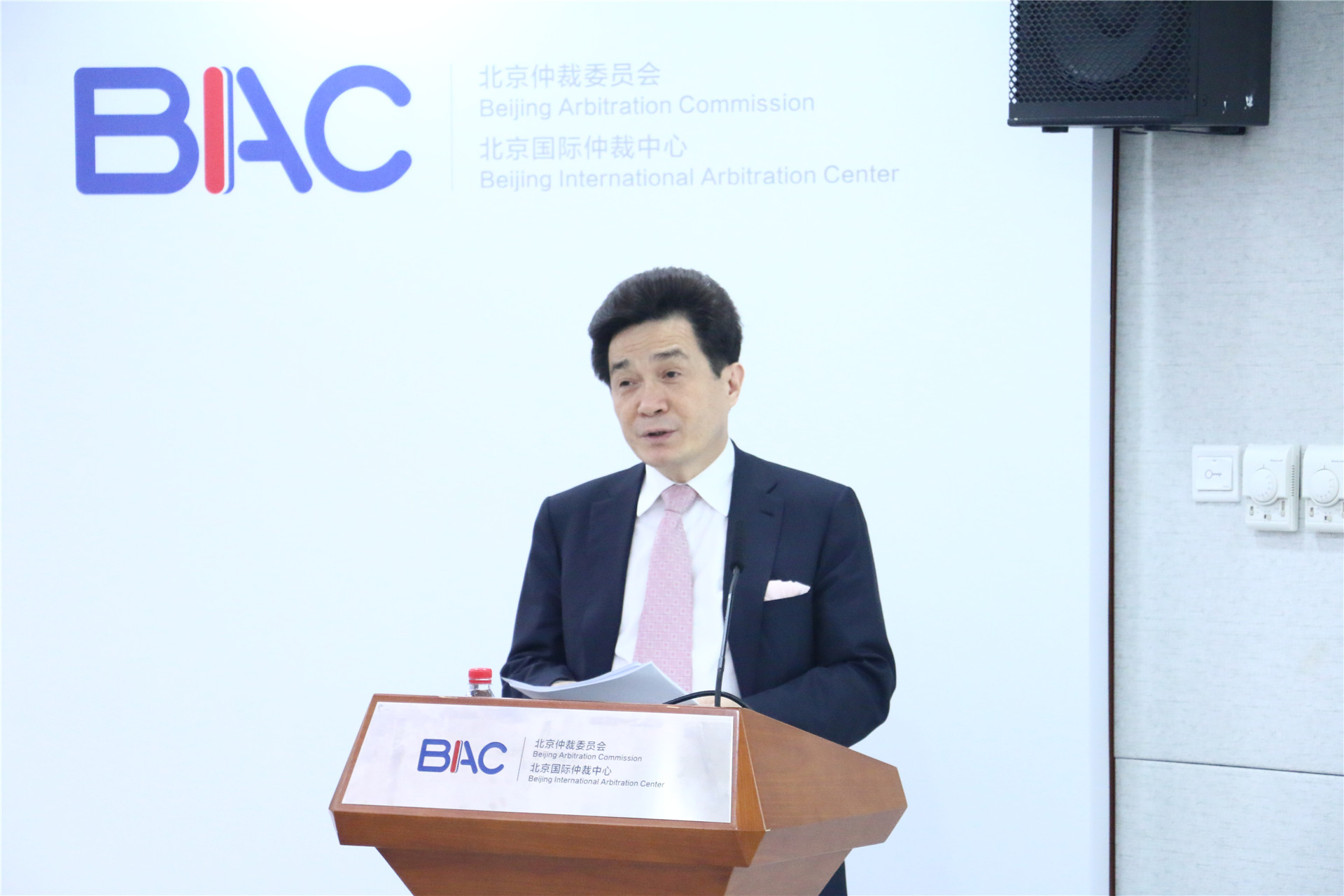 |
|
Main Speaker: Hilary Heilbron QC |
Moderator:Mr. Jingzhou Tao |
The formation of the arbitral tribunal, and in particular the appointment of the chief arbitrator, has always been paid close attention and laid much stress by the parties. After analyzing the arbitration rules of many international arbitration institutions such as the BAC/BIAC, Mrs. Hilary Heilbron QC raised a way of appointing the chief arbitrator in international arbitration. In domestic arbitration procedure, the selection of the chief arbitrator indeed relies on the decisions of the arbitration institution in most cases, and both parties and their counsels have little information about the possible candidates. To Mrs. Hilary Heilbron QC, however, it should be allowed in international arbitration that both parties and their selected co-arbitrators have some interaction with regard to the appointment of the chief arbitrator. “Arbitrators will have different perceptions on the same arbitration due to their different knowledge backgrounds, different social experience, and even different influence from subconsciousness”, she said, “Therefore, the eventual appointment of arbitral tribunal members will bring in subtle and dynamic content”. It is also because of the influence that may be produced from the communication between members of the arbitral tribunal, parties and their selected co-arbitrators should be given an opportunity to know about the candidates for the chief arbitrator, by which to improve the cooperation in international commercial arbitration.
When talking about the interaction between the arbitral tribunal and lawyers, Mrs. Hilary Heilbron QC pointed out that from the angle of the arbitral tribunal, they should build their authority in proper ways, such as actively issuing procedural orders to push the arbitral proceedings. Meanwhile, the arbitral tribunal should also pay attention to how far they could go in their investigation and inquiries. This probably could provide reference to domestic arbitral tribunals as to the scope and the extent of their interpretation power. From the perspective of lawyers, which is often neglected by Chinese lawyers, they should lay emphasis on positive interaction with the arbitral tribunal. First, respects are to be paid to the tribunal. Second, the “10 dos” and “10 don’ts” principle should be strictly kept in cross-examination, so as to convince the counterparty and the tribunal. Third, presentation in a hearing should be detailed-oriented and well-targeted. Last, written submission could be attached with catalogues and page marks for the convenience of the arbitral tribunal.
As commented by Mrs. Hilary Heilbron QC, international arbitration is a procedure requesting for sufficient communication, and communication is everywhere in arbitral proceedings, either between parties and their counsels, or between lawyers and arbitrators, or between members of the same arbitral tribunal.
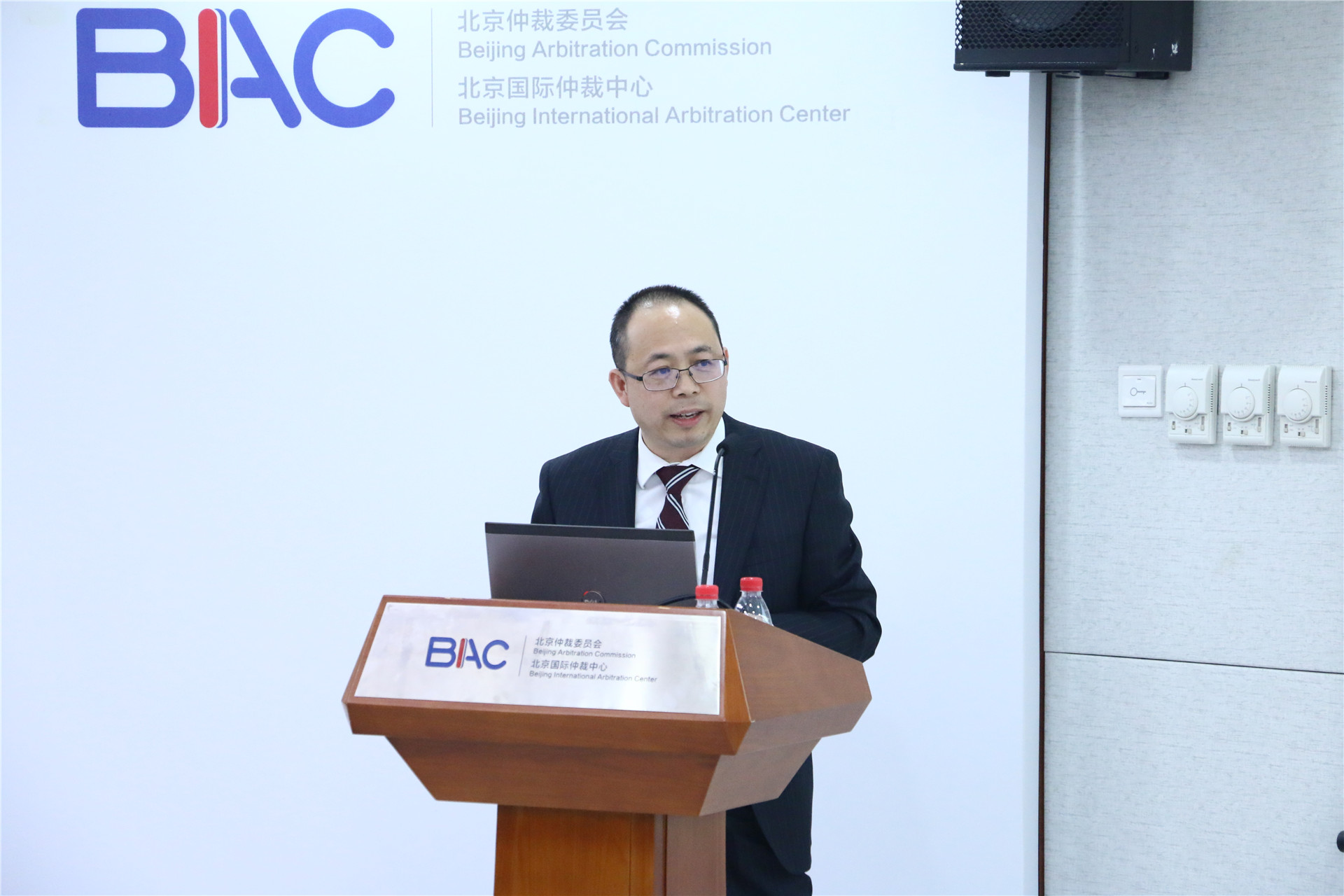 |
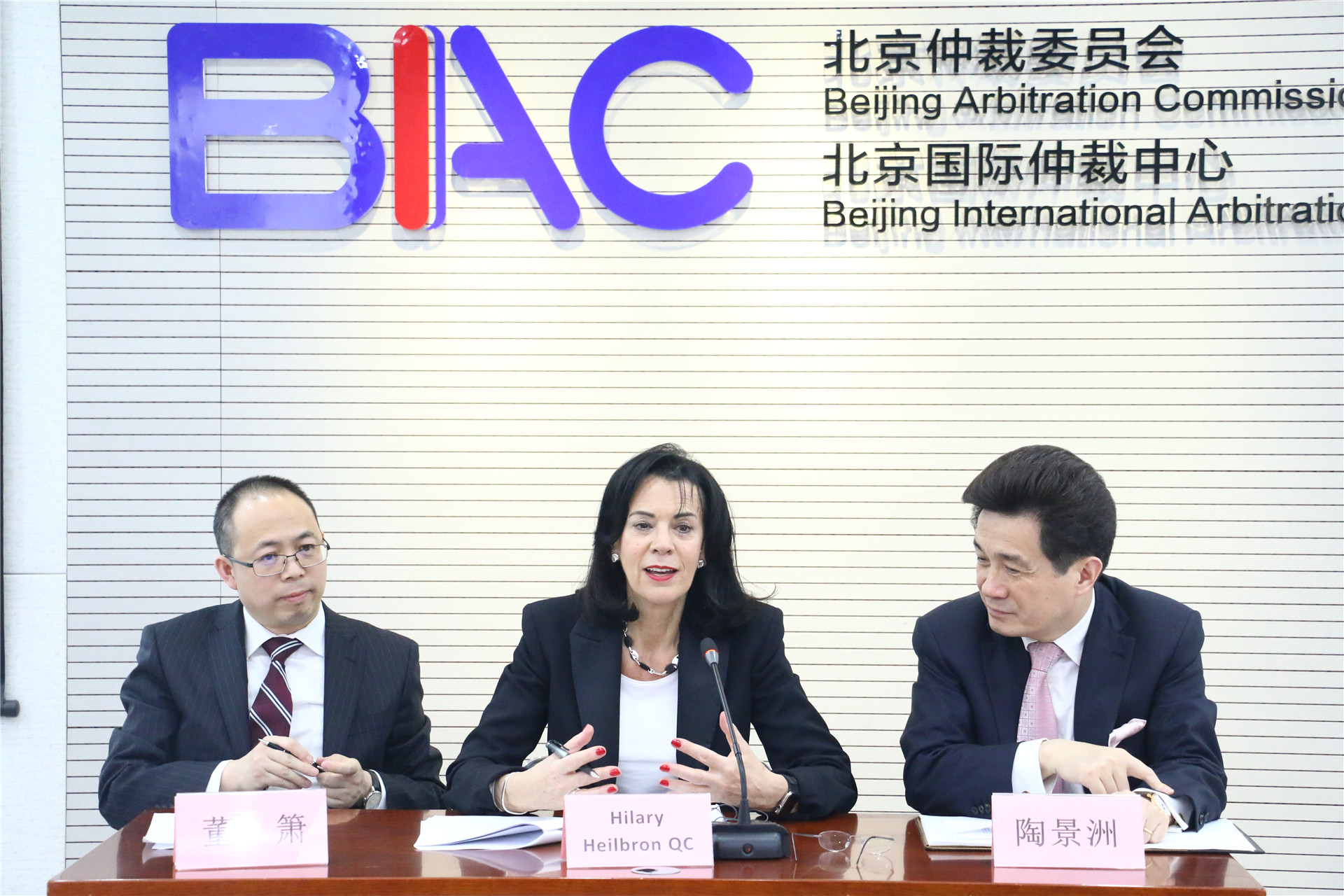 |
|
Commentator:Dr. Arthur Dong |
Q&A communication |
“International arbitration is similar as navigation, and if members of the arbitral tribunal are the captain and the crews, the parties are the owner of the vessel”. Dr. Arthur Dong took a vivid metaphor in his comments on Mrs. Hilary Heilbron QC’s speech. He included the courts as one of potential participants of international arbitration, and thereby enriched the communication system in international commercial arbitration. Meanwhile, from the perspective of Chinese lawyers, Dr. Dong provided unique thoughts on international commercial arbitration. He said that Chinese lawyers might find themselves in difficulties in light of the fact that international commercial arbitration is filled with Common Law practice. Nevertheless, through numerous practical trainings and extensive studies, Chinese lawyers may also win a place for themselves in international commercial arbitration. Dr. Dong thought that due to the difference between arbitration rules in different jurisdictions, Chinese lawyers may face different ways of conducting the arbitral proceedings, whereas Chinese arbitration institutions may also get influence from laws of different jurisdictions. It is necessary for Chinese lawyers and Chinese arbitration institutions such as the BAC/BIAC to pay continuous attention to the practice skills of interaction in international arbitration.
Following the speech, the audience had an active Q&A communication with the speakers with respect to the issues such as the possible influence of courts on international arbitration proceedings, separate hearings in international arbitration, drafting arbitration agreement, identifying the applicable law.
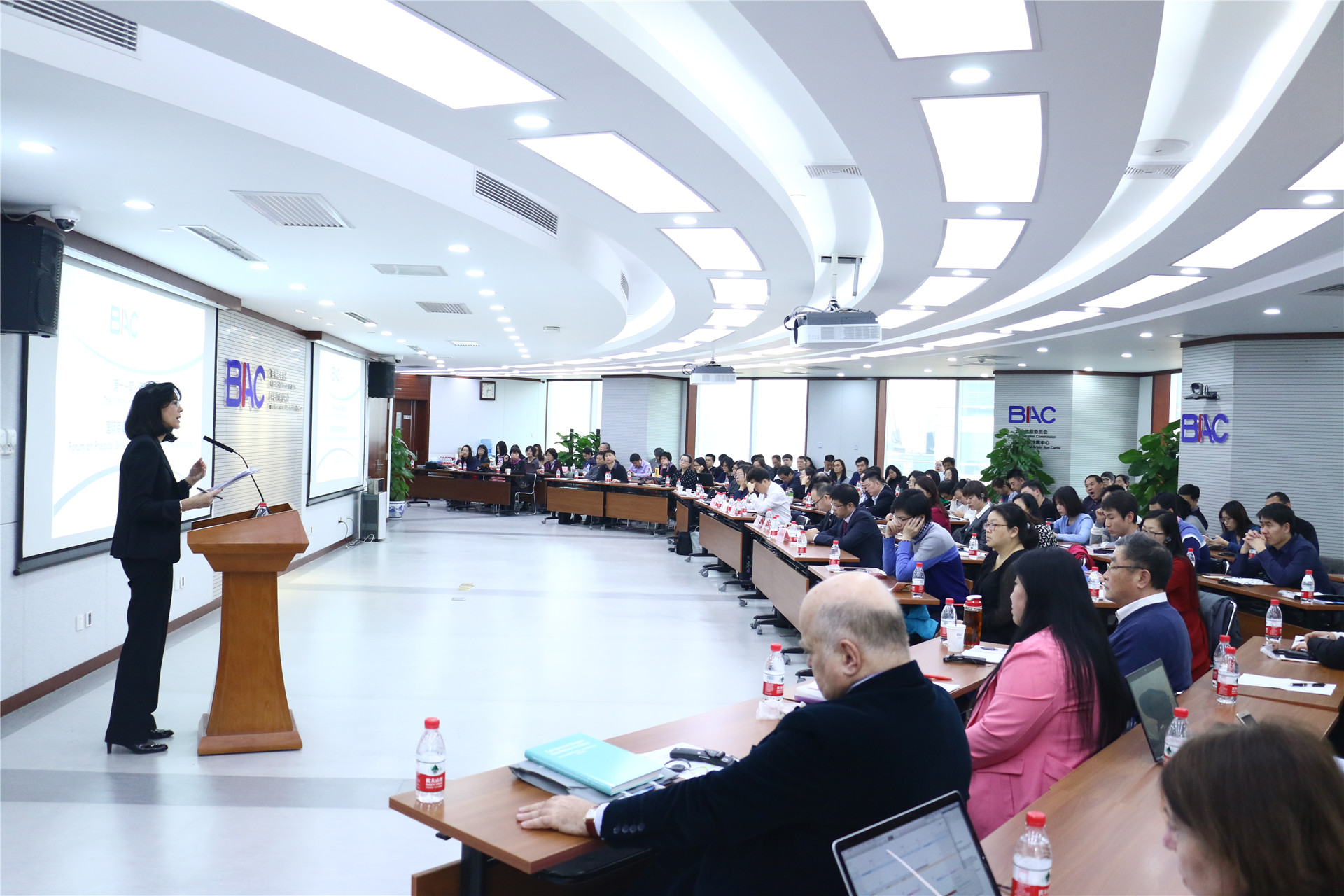
The seminar
The BAC/BIAC as one of leading arbitration institutions in China with sound international influence, has been stuck to its globalization development, adopted internationalized arbitration rules, and harvested its own practice of international arbitration and rich experience in dealing with international commercial arbitration. The BAC/BIAC has been endeavored to build a platform for the research and promotion of diversified dispute resolution, with the helpful practice and the latest hot spots of international commercial arbitration shared by well-known scholars and practitioners at invitation, both domestic and abroad, and in this way to promote the development of the Chinese diversified dispute resolution industry, to help the Chinese legal service industry get integrated into the global market and the international arena, and to safeguard the brand and interest of Chinese enterprises and even of the state. Anyone interested in diversified dispute resolution industry is welcomed to continue to pay attention to the website and WeChat platform of the BAC/BIAC for more updates.